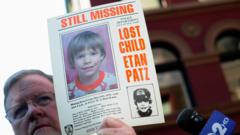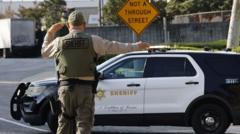Amid ongoing controversies surrounding the 2016 election, Donald Trump accused Barack Obama of treason for allegedly undermining his presidential victory, prompting a rare defense from Obama's spokesperson, who called the claims outlandish.
Obama Responds to Trump's 'Treason' Accusations Amid Election Controversy

Obama Responds to Trump's 'Treason' Accusations Amid Election Controversy
Barack Obama offers a rebuttal to Donald Trump's claims of treason linked to the 2016 election, calling the accusations nothing more than a distraction.
Former President Donald Trump has leveled severe accusations against Barack Obama, claiming he committed "treason" by allegedly plotting to undermine Trump's first presidency through links to supposed Russian election interference. Trump, at a White House press conference, asserted that Obama engaged in efforts to sabotage his 2016 victory over Hillary Clinton.
In response, a spokesperson for Obama, Patrick Rodenbush, expressed disbelief at the "bizarre" charges, characterizing them as a "weak attempt at distraction" amidst ongoing scrutiny of Trump's administration, including issues surrounding convicted sex offender Jeffrey Epstein.
Trump's assertions followed a recent report from US Director of National Intelligence Tulsi Gabbard, which alleged that Obama and his national security team had orchestrated a "years-long coup" against him — allegations dismissed as false by Democrats. The former president, while hosting the Philippines President Ferdinand Marcos Jr., also indicated that Obama had "been caught directly," reinforcing that the accusations were "absolutely cold" against him.
Analyzing declassified documents, Gabbard claimed they revealed a conspiracy intended to harm Trump, with actions taken by officials in the Obama administration to modify intelligence assessments regarding Russia's influence on the 2016 election. However, Rodenbush emphasized that no evidence contradicted the established understanding that while Russia attempted to influence the election, it did not affect the actual voting results.
The US intelligence community concluded in 2017 that Russia's interference sought to damage Clinton's campaign while bolstering Trump’s odds in the election. Despite this, no substantial evidence emerged from the subsequent investigations, including the Mueller report, to suggest coordination between Trump’s campaign and the Kremlin.
As tensions rise within the political landscape, these allegations reignite discussions about the integrity of the past elections and the long-ranging consequences of election-related conspiracies.




















